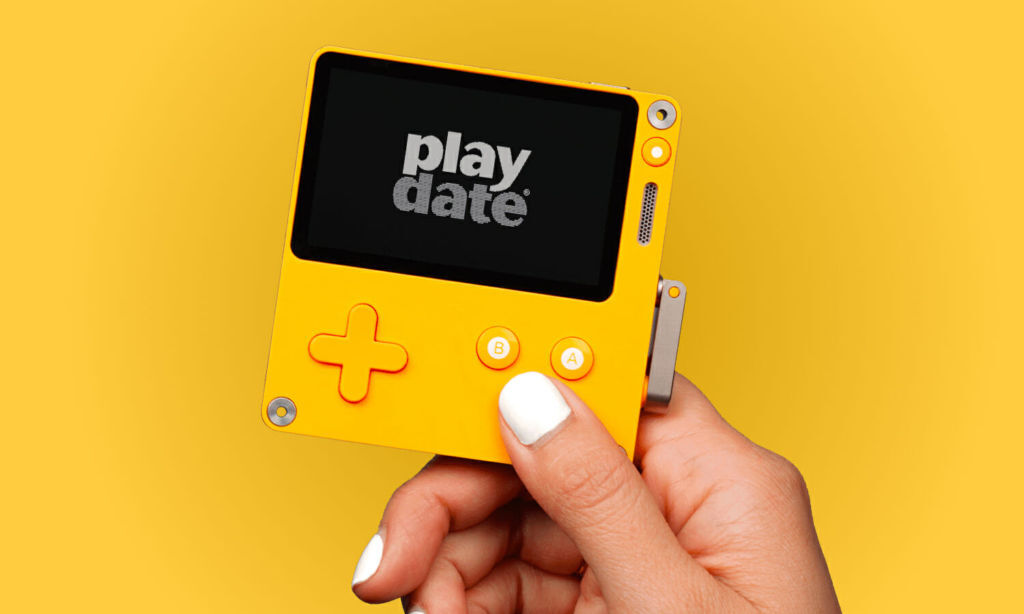Putting the Soul in Console
Playdate, the upcoming indie handheld gaming console from venerable software publisher Panic, is really important. But if you don't know the history of where the little company behind this little device comes from, it might be hard to understand why this isn't just another random gadget like you might see on a crowdfunding site.
An Indie Scene
About 20 years ago, there was a bit of a reckoning about what the web was going to be. The dot com era of startups were in full bloom (the crash didn't come until 2000, with 9/11 cementing the collapse of the first web bubble) but those of us who loved the internet could sense some of the joy and creativity seeping out of it as the money men took over.
A little less obvious was the reckoning going on amongst "software people". We were still making programs then, or software — applications wouldn't get shortened to "apps" until the iPhone took off almost a decade later. But there was a culture that almost saw making software as a craft. And a number of new web-savvy companies sprung up at the forefront of that movement, all of them decidedly not interested in just riding the dot com wave that was about to crash. I was a fan of them all, watching from afar as they seemed to set the standards for what was "cool" in tech — and all of them did it from outside of Silicon Valley.
Basically, in tech there was something akin to an independent music scene that one might see in a mid-sized town. Except it was geographically dispersed rather than being in one city, and it was about creating technology instead of creating songs.
In Chicago, there was 37 Signals. Brash, bold, opinionated, and trendsetting in design, the company evolved over time into today's Basecamp, still one of the most popular project management tools. (And they spun out lots of interesting tech and tools along the way.) In New York City, we had Fog Creek Software. It, too, had opinionated and charismatic leaders talking pointedly about The Right Way to make software, and it changed immensely over the years, spinning out efforts like Trello and Stack Overflow, before finally evolving into Glitch, where I work now.
And then, in Portland, there was Panic. They began with the venerable and utilitarian FTP app, Transmit, but released a wide variety of tools for developers, before transforming themselves in recent years into a broader, more ambitious software publisher that put out mainstream hits like Firewatch. But where these other standard-bearer companies were brash and in-your-face, Panic was always a little, well... goofy. Friendly, to be sure. And smart as hell. But there was a sense of exploration and fun and play to everything Panic did.
And today, we got to see one of the most exciting announcements in the two-decade history of the company: Playdate. You can read up on all the details elsewhere, but suffice to say, this little game machine looks like one of the most fun and joyful new efforts that any company has done recently, and that a tiny indie software company in Oregon has the ambition to even attempt such a thing makes it only more endearing.
Perhaps the best way of explaining why Panic is so important to so many of us is to watch Panic co-founder Cabel Sasser's wonderful, heartfelt talk at the XOXO Festival back in 2013. (It even teases the existence of Firewatch, long before it became a smash hit!)
Cabel's closing exhortation to "don't waste this, keep everyone guessing, and make me proud" hit me hard in the room at that moment, and stuck with me to this day. Because Panic has done exactly that.
Date of Arrival
I'd been given a hint a while ago that something like this was coming, but the final execution is even more delightful than I'd imagined it might be. (That crank!) More importantly, it's captured the imagination of so many, and seems like the kind of thing that could inspire a new generation of creative people to think, "Hey, maybe good tech is something we can make ourselves." I've seen it happen on Glitch, and now I see it happening around Playdate after just a few hours.
That idea, that maybe things like our gaming devices or the websites we visit should be created by people we know and like, instead of giant faceless companies, seems more essential than ever. We would never settle for replacing all of our made-with-love, locally-grown, mom's recipe home cooking with factory-farmed fast food, even if sometimes convenience demands we consume the latter. And we shouldn't compromise any less on making sure that some of the time we spend playing games with each other, and delighting in the promise of technology, comes from people who've been diligently working for years to make well-sourced, organically grown, made-with-love technology.
I don't know if Playdate will succeed in the market. I don't know what kind of risk it represents for Panic as a company. But I know that people see this cute little device, and are reminded that they used to get excited when they saw cool new technology, instead of wondering how it would warp their reality, or steal their information. Here's hoping for a return to tech that's fun, that's thoughtful, and that's created with a little bit of soul.
